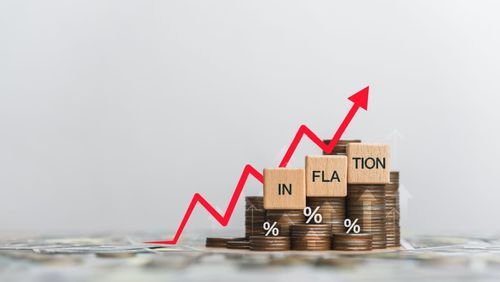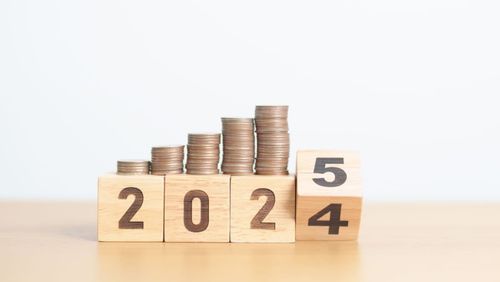Rock bottom: Boris Johnson limps on but is one lame duck after Sunak and Javid resigned last night. He will fight on until forced out. The 1922 Committee will change the rules and backbenchers will oust him. Political risks do not seem to have a major impact on UK assets – far too many bigger things on our minds right now – inflation, the economy slowing down, strikes…chances are we see some tax cuts soon. Zahawi is the new chancellor…what are his economic policies? Could be the shortest-serving Chancellor in history?
European stock markets are staging a recovery this morning after a steep plunge Tuesday. This has the look of a dead kitty bounce in Europe – it is a reaction to yesterday’s sharp decline, it does not indicate capitulation, only resetting at a lower level after a very volatile session. US stocks staged a big turnaround to end the day in the green, the S&P 500 closing up 0.16%, some 90pts above the lows of the day. But moving from a month-low to a month-high in the session is not a ‘bullish close’ as some might say.
It had been a rough day for risk, with everything offered except bonds and the US dollar, which is proving to be the main safe haven amid fears for the global economy. This was a recession over inflation day as breakevens tumbled, yields fell and growth stocks outperformed. The S&P 500 was at Friday’s intraday low at the open around 3,750 before progressing lower to 3,740 where it found support and falling bond yields lifted the market. Tech liked the lower yields as bonds caught a bid, so the Nasdaq outperformed the broader market and rallied 1.75%. ARKK rallied almost 9%…tells you all you need to know about this snapback.
With oil tanking the FTSE 100 ended the day down almost 3% led by a horrible 8.7% decline for Shell and 7% drop for BP. Recession fears over inflation…but I do think those suckered into bonds in the last couple of sessions will feel pain down the road. The DAX also slumped by almost 3% as all European indices plunged. The reaction today has been swift, with the major bourses +2% in the first hour of trading. Positive German factory order numbers helped sentiment but the mood is febrile and recession fears are not less today than they were yesterday.
The dollar is holding onto gains as it sits around a 20-year high. Sterling fell to a fresh 2-year low against the dollar, whilst the euro lies just a few pips above its 20-year low. Sterling’s (and the euro’s) decline reflects a combination of monetary policy weakness, economic weakness and political weakness. The US economy is less at risk of a full-blown recession than either Europe or the UK, where the outlook continues to deteriorate. US monetary policy has also been far more assertive, albeit still tardy. Politically…frankly they’re all a shambles.
Oil was down very hard, WTI sinking beneath $100, but front month WTI has regained this level as of this morning. JPM says $380…Citi says $65, which probably reflects their own books. Norway has ended the strike by oil and gas workers.
Copper is lower again, sliding to its lowest since November 2020 even as Chinese data seems to be improving…bellwether but also just like everything else we are seeing a lot of leveraged longs unwound.
Gold was crushed to weakest since December as 5-year breakevens fell to their lowest since early last October…
Markets are pricing in the Fed needing to cut rates next year as inflation cools and growth slackens…which say the 2s10s curve invert for a third time this year. Yields are picking up this morning with the FOMC minutes in focus later in the session. Ahead of these we have the June ISM non-manufacturing PMI and May’s JOLTs job openings, with nonfarm payrolls due Friday.
We should make the distinction between real and nominal growth with regards the US- in nominal terms the economy is growing – inflation helps, plus jobs growth has been very strong…so recession fears can be confusing when looking at these in terms of the Fed…inflation is sticky and while there may be a real terms recession (bad for the consumer), in nominal terms there is growth so the Fed won’t be stopping its hikes, which means rates are going to get a lot higher before this is over which would be bad for growth stocks and good for longer-dated bonds.
Amid all this, I would not be overly confident this rally has legs. If there is follow-through today it only sets up a more volatile end-of-week. Bottom not yet in – if stocks are rallying on falling bond yields coz recession…then when bond yields inevitably rise as the Fed tightens and inflation persists then we are back to the bear.
Finally, the ECB holds a nonmonetary policy meeting today in Frankfurt, where the Governing Council will discuss the new anti-fragmentation tool. This tool, which will enable the ECB to hike rates and still buy government debt of certain countries, is fraught with technical, political and legal risks. But it should be noted that the tool is important to get right – failure would make it harder to raise rates as much as the ECB needs to do in order to get a grip on inflation.








